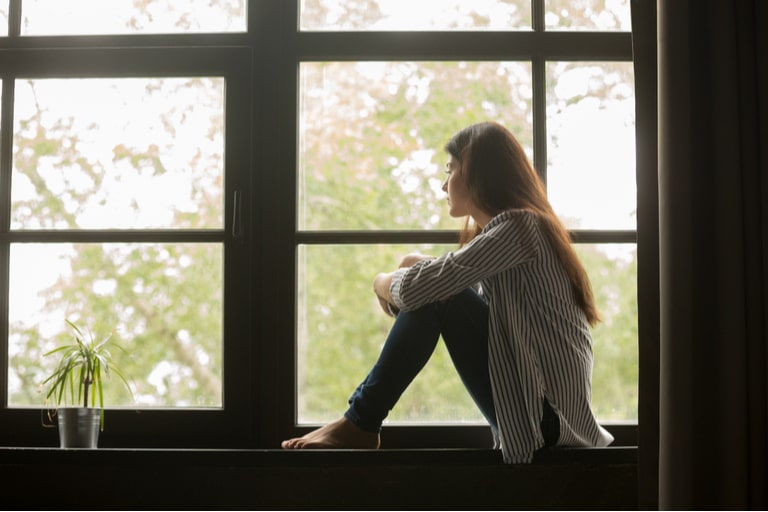By Berit Brogaard, Professor of Philosophy and the Director of the Brogaard Lab for Multisensory Research at the University of Miami
Extraverts are naturally inclined to engage in the kinds of personal interactions that build rapport with other people. In normal circumstances, this gives them a distinct edge when it comes to succeeding in school or on the job. But in a time of crisis, like the current coronavirus pandemic, when most people are being asked to stay at home, introverts may have the upper hand.
Extraversion, one of the “Big Five” personality traits, is characterized by these six facets: approachability, assertiveness, energy level, excitement seeking, cheerfulness, and gregariousness. In normal circumstances, this combination of facets gives extraverts a distinct advantage compared to more introverted peers in terms of building rapport with other people.
How exactly the interaction styles of extraverted individuals help them strengthen social bonds is not fully understood. However, research points to mimicry—the unconscious process of imitating the speech patterns, body language, and movements of others—as a principal factor.
Mimicry has long been known to build and reinforce social bonds by eliciting positive feelings in the person whose behaviors are mirrored. Only more recently was it revealed that, unlike their more introverted colleagues, extraverts are naturally adept at detecting when they stand to gain from mirroring others.
Mimicry doesn’t just increase positive feelings. As other lines of research have shown, we have unconscious expectations relating to mimicry. For example, we expect people who have our best interests in mind to mimic us. When these expectations aren’t met, this can elicit negative feelings toward the person who fails to meet them. Because introverts often inadvertently fail to meet other people’s expectations of mimicry, not only do they lack the “extravert advantage,” they might even have a distinct introvert disadvantage.
During periods of enforced, or encouraged, social isolation, however, extraverts are less likely to have a social edge. Alternative means of interaction, such as email and video conferencing, have been found to strongly limit the opportunities for effective mimicry compared to real-life interactions. Voice calls and email exchanges are particularly restrictive, as they only allow for mimicry of speech or language patterns, but by cutting off access to a lot of body language and movements and ruling out physical contacts, such as handshaking and touch, video conferencing also greatly reduce the possibility of mirroring the behaviors of others.
Because the circumstances favorable for mimicking are severely constrained when we are forced to rely on alternative means of social interaction, extraverts are less likely to reap any benefits of their mastery of the skill of mirroring the behavior of others.
But not only are extraverts deprived of their usual advantage, but they are also more vulnerable to the adverse effects of social isolation. In normal circumstances, the preference of extraverts for engaging in social interactions and their higher need for social stimulation make them more inclined to actively seek out opportunities for social and interpersonal interaction, which can help protect against feelings of boredom and loneliness.
But when limitations are placed on the opportunity to engage with others, extraverts become more vulnerable to the ill effects of solitude on mental and physical health, such as stress, loneliness, depression, immune system suppression, heart disease, stroke, and premature death. Because extraverts are disposed to feel energized by socializing but tend to feel low during extended periods of solitude, they don’t tolerate social isolation as well as introverts, which makes them particularly prone to the adverse health effects of being on their own.
The higher resilience of introverts during periods of enforced social isolation turns on the fact that introverts have a strong preference for spending long stretches of time on their own in secluded spaces, completing tasks that do not require the company of others, such as reading, writing, solving crossword puzzles, playing video games, gardening, doing yard work, or cooking. When forced to stay at home, introverts can thus continue doing what they do best. In fact, they may even breathe a sigh of relief, now that they don’t have to pretend to be extraverts in order to succeed.
Extraverts, by contrast, have a strong need for social stimulation: They crave open spaces and new and exciting surroundings. So, when forced to self-isolate, they are prevented from accessing the social activities that for them are as essential as food and water. Unable to continue the social interactions that make them flourish, they are far susceptible to the adverse effects of unwanted solitude on mental and physical health.
Berit Brogaard is Professor of Philosophy and the Director of the Brogaard Lab for Multisensory Research at the University of Miami. She is also an editor of the international peer-reviewed philosophy journal Erkenntnis, is the 100th President of the Southern Society for Philosophy and Psychology and was the first female President of the Central States Philosophical Association.
Note: The views expressed in this article are the author/s, and not the position of Intellectual Dose, or iDose (its online publication). This article is republished with permission.



